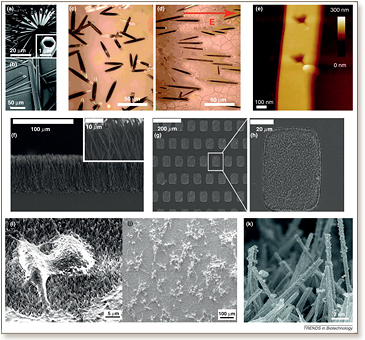

Short, self-assembling peptides form a variety of stable nanostructures used for the rational design of functional devices. Peptides serve as organic templates for conjugating biorecognition elements, and assembling ordered nanoparticle arrays and hybrid supramolecular structures. We are witnessing the emergence of a new phase of bionanotechnology, particularly towards electronic, photonic and plasmonic applications. Recent advances include self-assembly of photoluminescent semiconducting nanowires and peptide-conjugated systems for sensing, catalysis and energy storage. Concurrently, methods and tools have been developed to control and manipulate the self-assembled nanostructures. Furthermore, there is growing knowledge on nanostructure properties such as piezoelectricity, dipolar electric field and stability. This review focuses on the emerging role of short, linear self-assembling peptides as simple and versatile building blocks for nanodevices.
DOI: 10.1016/j.tibtech.2011.11.001

"KAUST shall be a beacon for peace, hope and reconciliation, and shall serve the people of the Kingdom and the world."
King Abdullah bin Abdulaziz Al Saud, 1924 – 2015
Thuwal 23955-6900, Kingdom of Saudi Arabia
Al-Haytham Building (Bldg. 2)
© King Abdullah University of Science and Technology. All rights reserved